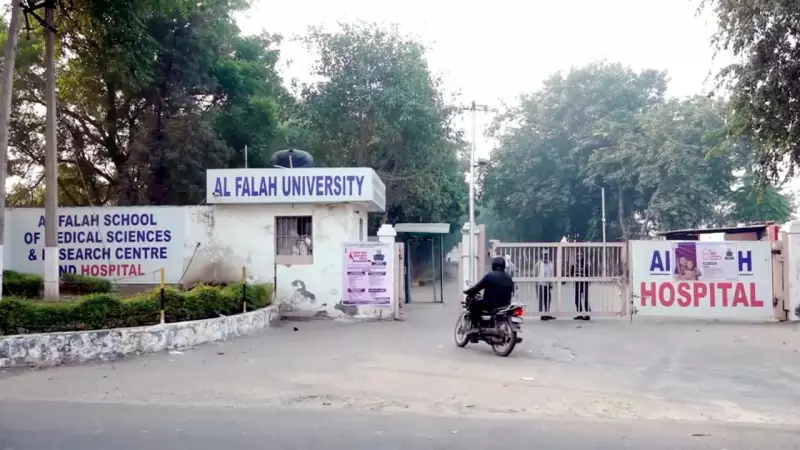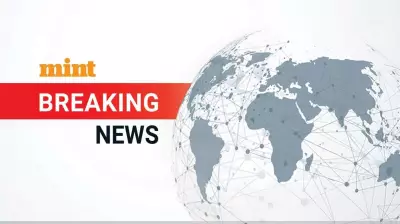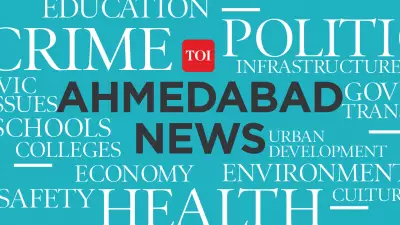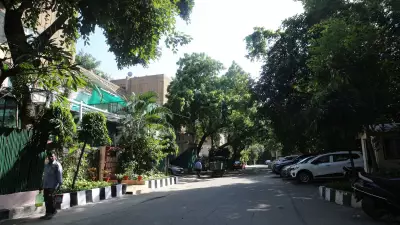
Investigations into Monday's devastating explosion near Delhi's historic Red Fort have taken a dramatic turn, revealing connections to medical professionals associated with Faridabad's Al-Falah University. The blast claimed nine lives and has since uncovered a sophisticated terror network operating across multiple states.
The Blast That Started It All
A massive explosion near Delhi's Red Fort on Monday evening resulted in nine fatalities and set investigators on a trail that would lead them to an unexpected location - the academic corridors of Faridabad's Al-Falah University. The vehicle involved in the blast, a Hyundai i20, was driven by Dr Umar Un Nabi, whose name quickly became central to a broader investigation spanning Jammu & Kashmir, Haryana, and Uttar Pradesh.
University Connection Revealed
As authorities dug deeper into the Delhi blast case, their attention turned to Al-Falah University, where three medical professors - Dr Umar Un Nabi, Dr Muzammil Ahmad Ganaie, and Dr Shaheen Sayeed - were teaching MBBS students. Investigators now suspect these educators were using their academic positions as cover for facilitating a radical network with ties to Pakistan-based terror organizations.
The institution itself has a substantial history, having been founded in 1997 as an engineering college before receiving university status from the University Grants Commission in 2014. The 70-acre campus now hosts programs in medicine, pharmacy, and paramedical sciences, operating an 800-plus bed super-specialty hospital that serves as its teaching and training center.
Massive Explosive Discovery
The case escalated dramatically when police uncovered nearly 2,900 kg of ammonium nitrate and other explosive materials from two rented rooms connected to Dr Muzammil. The seizure included assault rifles, pistols, multiple magazines, timers, remote devices, and walkie-talkies - equipment indicative of preparations for a large-scale terror attack.
Two Faridabad villages, Dhauj and Fatehpur Taga, located just kilometers from Al-Falah University, became central to the investigation. Local residents described Dr Muzammil as polite and low-profile, never raising suspicion despite allegedly transporting hundreds of kilograms of chemicals over several weeks.
Further complicating the investigation, authorities discovered that part of the explosive cache was hidden in a modest house owned by Mohd Istaq, a cleric who led prayers at the university mosque. Istaq had rented one room to Dr Muzammil, where 358 kg of ammonium nitrate was subsequently found. The location - a half-built house on a single-lane road - provided ideal concealment, raising questions about potential additional accomplices.
University Response and Expanding Investigation
Following the arrests of Dr Muzammil Ganaie and Dr Shaheen Sayeed, Al-Falah University issued an official statement describing the incident as "deeply distressing." Vice-Chancellor Dr Bhupinder Kaur Anand emphasized that the institution has "no association with the accused beyond professional employment" and pledged full cooperation with ongoing investigations.
The university publicly condemned the blast and related terror activities, stating, "We stand in solidarity with the nation and reaffirm our commitment to peace and security." Officials stressed that no chemical or explosive materials were ever stored on campus and that all laboratories operate under strict safety and ethical protocols.
Al-Falah University is operated by the Al-Falah Charitable Trust, registered in Delhi's Okhla area under Chancellor Jawahar Ahmed Siddiqui's leadership. Recruitment and operational activities are reportedly coordinated from the Okhla head office. Current and former employees have indicated that the university occasionally receives donations from Arab countries - a claim now under scrutiny by investigating authorities.
The investigation has expanded significantly across Haryana, Jammu & Kashmir, and Uttar Pradesh, with multiple agencies working to trace funding routes, identify suppliers, and uncover potential foreign connections. Intelligence officials suspect the module was in communication with handlers from Pakistan-backed outfits like Jaish-e-Mohammed. Authorities believe the discovery of the Faridabad explosive cache may have prevented a potential large-scale attack in the National Capital Region.





